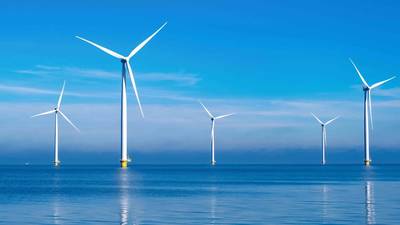Orsted Favors Increasing Investments in Taiwan, South Korea
Orsted, the world's biggest offshore wind developer, will increase investment in Taiwan and South Korea where it has already been awarded projects, instead of expanding to new markets in Asia, a senior company official told Reuters on Monday.
Rising costs, supply chain disruptions and loss of investor confidence in offshore wind have resulted in the Danish company losing around 80% of its market value from its 2021 peak.
"I think our main focus is now to double down on the key markets that we have chosen to win in," Per Mejnert Kristensen, Orsted's Asia-Pacific president told Reuters on the sidelines of the Energy Asia 2025 conference.
Orsted, the biggest offshore developer by capacity, withdrew its previously set 2030 target for installed renewable capacity of 35-38 gigawatts this year, and Chief Executive Rasmus Errboe faces the challenge of reviving investor confidence and meeting the new realities of the offshore wind industry.
The company operates 10 gigawatts (GW) of offshore capacity globally, including 0.9 GW in Taiwan. It also has prospective projects in South Korea and Australia in various stages of development.
"We know that we are in an environment that can change. We need to see clearly investable projects," Kristensen said, adding that he hoped other Asian countries emulate the Taiwan government's policies.
"They have very good wind conditions for offshore wind. They have relatively shallow water, so you can put fixed bottom offshore wind parks in the ocean. And then on the political side, they had very early and clear ambition, and then they managed to make some offshore wind frameworks that made the projects investable," he said.
As a result, international investors together with local partners in Taiwan could clearly see a pathway that would make it worthwhile to invest for the next 30-40-50 years, he said.
"While the political ambition is there (in some other countries), it's not all places where they've managed to translate that into commercially viable frameworks," he said.
(Reuters)



